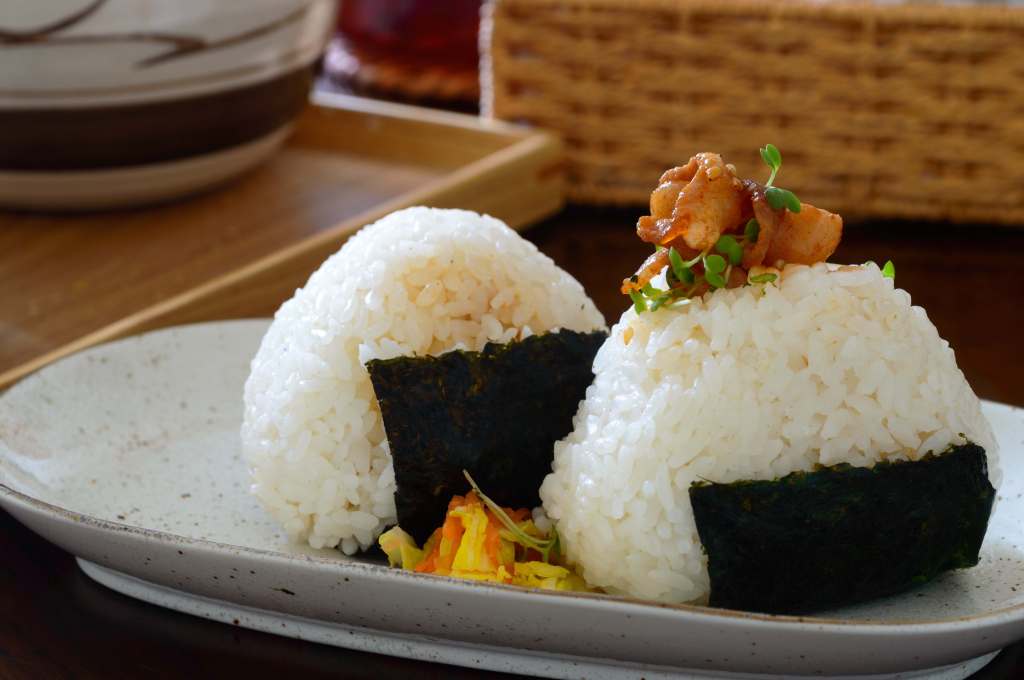Rice and peas, Reggae nights, jerk drums … and chopsticks. Welcome to the unlikely world of Jamaican food in Japan. This cuisine-fusing marvel first came to my attention shortly after I published Belly Full: Caribbean Food in the UK, my book on Britain’s Afro-Caribbean food culture. I began receiving a lot of interest from readers in Japan, which made little sense to me as the country is not known for having a large Caribbean diaspora. Out of curiosity, I delved into the scores of Japanese Instagram accounts that had begun following the Belly Full project, and discovered pages and pages of food establishments dedicated to reggae culture and Jamaican food—all captioned in Japanese and geotagged to Tokyo and Kyoto.
I did some research and found that Japanese interest in Jamaican culture can partly be traced back to 1979, when Bob Marley and The Wailers visited the country on their Babylon by Bus Tour. It was the first time Marley had performed in Japan and his music spawned an immediate wave of Japanese reggae enthusiasts, later paving the way for Japan’s thriving dancehall scene. In the decades following Marley’s tour, Japanese reggae enthusiasts and a small number of Jamaicans living in Japan (mostly musicians and their families) set up reggae record stores, clubs, and Japansplash—the Japanese arm of the international reggae festival Sunsplash. Japan’s Jamaican bars and restaurants are an extension of this love for Jamaican culture, and probably one of the most exciting Caribbean-Asian culinary crossovers I’ve ever come across.
Videos by VICE
When I visited Japan earlier this year, I knew I’d have to pay some of the establishments behind these Instagram accounts a visit. Most are located on back streets in trendy parts of Tokyo, and manned by small teams of passionate chefs and front-of-house staff dedicated to pushing Caribbean food and culture, despite being on the opposite side of the world.


First on my list is AmaLab Jerk Center, a weekend pop-up in the Tokyo suburb of Koyama. I get talking to Tash, a fellow diner and long-time reggae fan, who explains how Jamaican music helped turn Japanese diners onto Caribbean food: “Ever since Japansplash, there’s been Caribbean food in Japan. There would always be someone doing jerk at shows.”
Tucked down a quiet lane, AmaLab looks like a small Tokyo living room. In Japanese fashion, customers remove their shoes and are supplied with slippers when they enter. Owner Shinsuke greets guests and paces between front- and back-of-house, preparing orders for those eating in and passers-by who knock on the hatch window.
The menu is simple, listing standard Jamaican dishes including various jerk meats, rice and peas, and ital stew. Shinsuke explains that he uses egg in place of ackee in his ackee and saltfish dish, as the fruit is difficult to source here on a regular basis. The jerk chicken and rice dishes are made using only an electric grill and rice cooker—basic appliances found in pretty much any Japanese home and a long way from the traditional Jamaican jerk drum. I also notice that the rice is stickier than in classic Jamaican cooking, perhaps catering to Japanese tastes. Scallion and soy sauce are offered as seasoning.

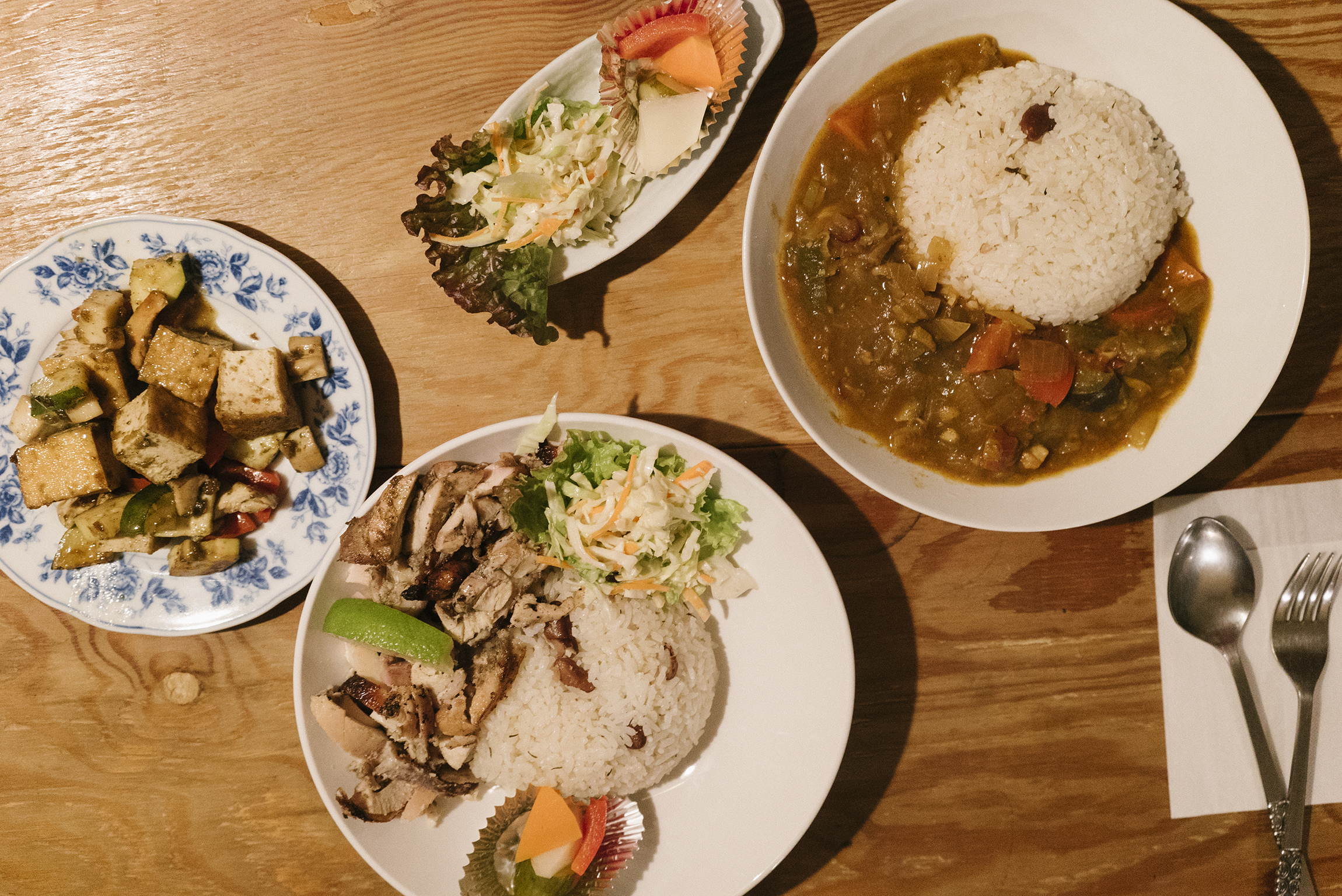
Shinsuke tells me that he came to know about Jamaican food through his passion for reggae, which he discovered in college. He laughs and admits that he didn’t actually know where Jamaica was on a map before hearing Bob Marley.
He also notes that there are many similarities between Jamaican and Japanese food. Both have a focus on seafood and curries, and include an almost mandatory use of rice—whether sticky or loose. For most of his customers, eating at AmaLab is their first interaction with Jamaican food and culture.
“’Oshi,’ they all say,” Shinsuke tells me, using the Japanese word for delicious. “And they always come back.”
Next on my list is Island Kitchen, a street food truck that parks up outside various offices in central Tokyo. Founder Yuki has been a fan of reggae and Jamaican culture since he was a teenager.
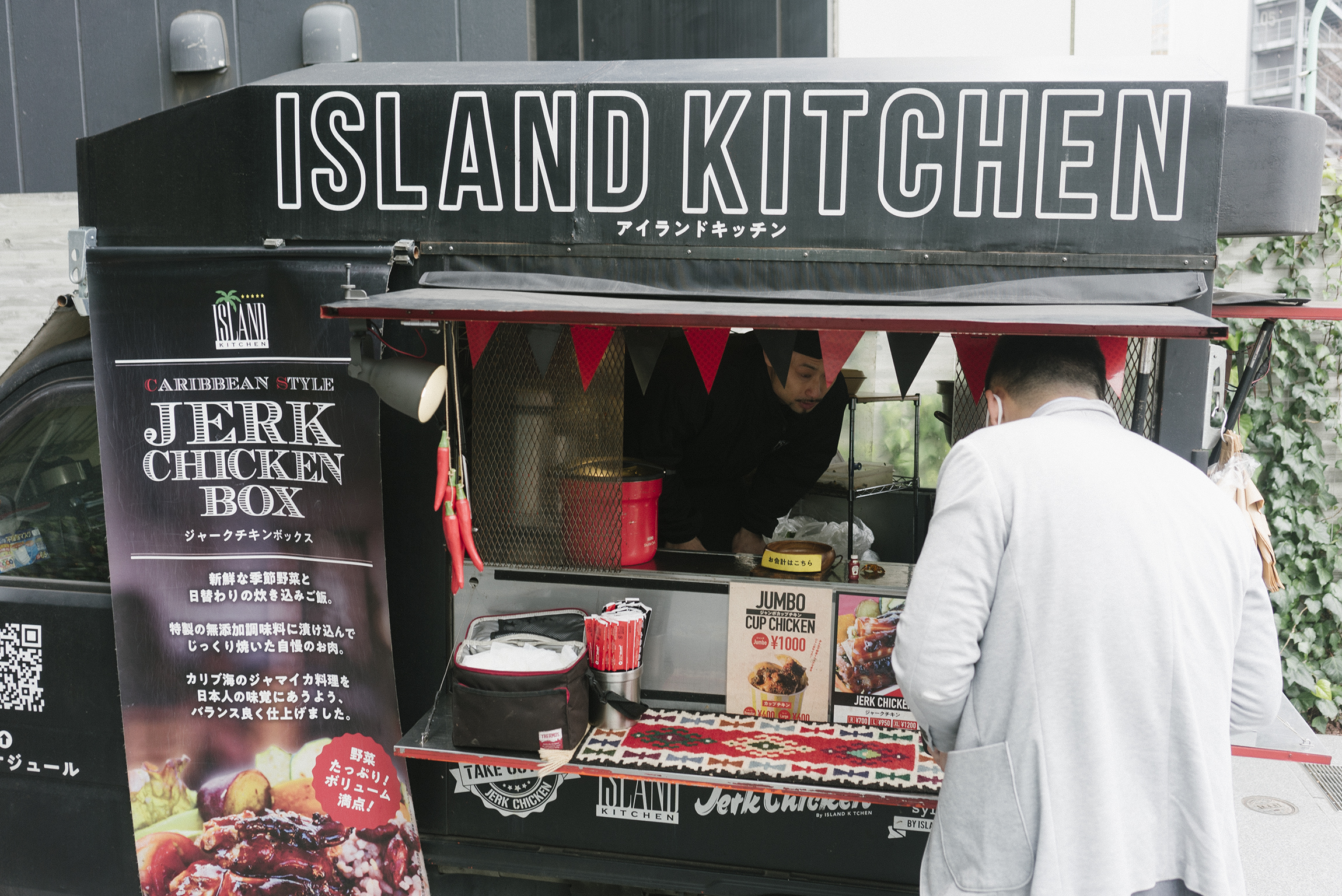
“I was into the music and culture so I went [to Jamaica] almost ten years ago, when I was 18,” he tells me. “I went back again a few years later and ended up staying for four years as a chef in hotels and restaurants in Kingston.”
Back in Japan, Yuki founded his own successful Japanese street food business but admits that it can be hard to source the necessary ingredients.
“It’s hard to get Jamaican veg here in Japan. It’s too expensive to ship!”
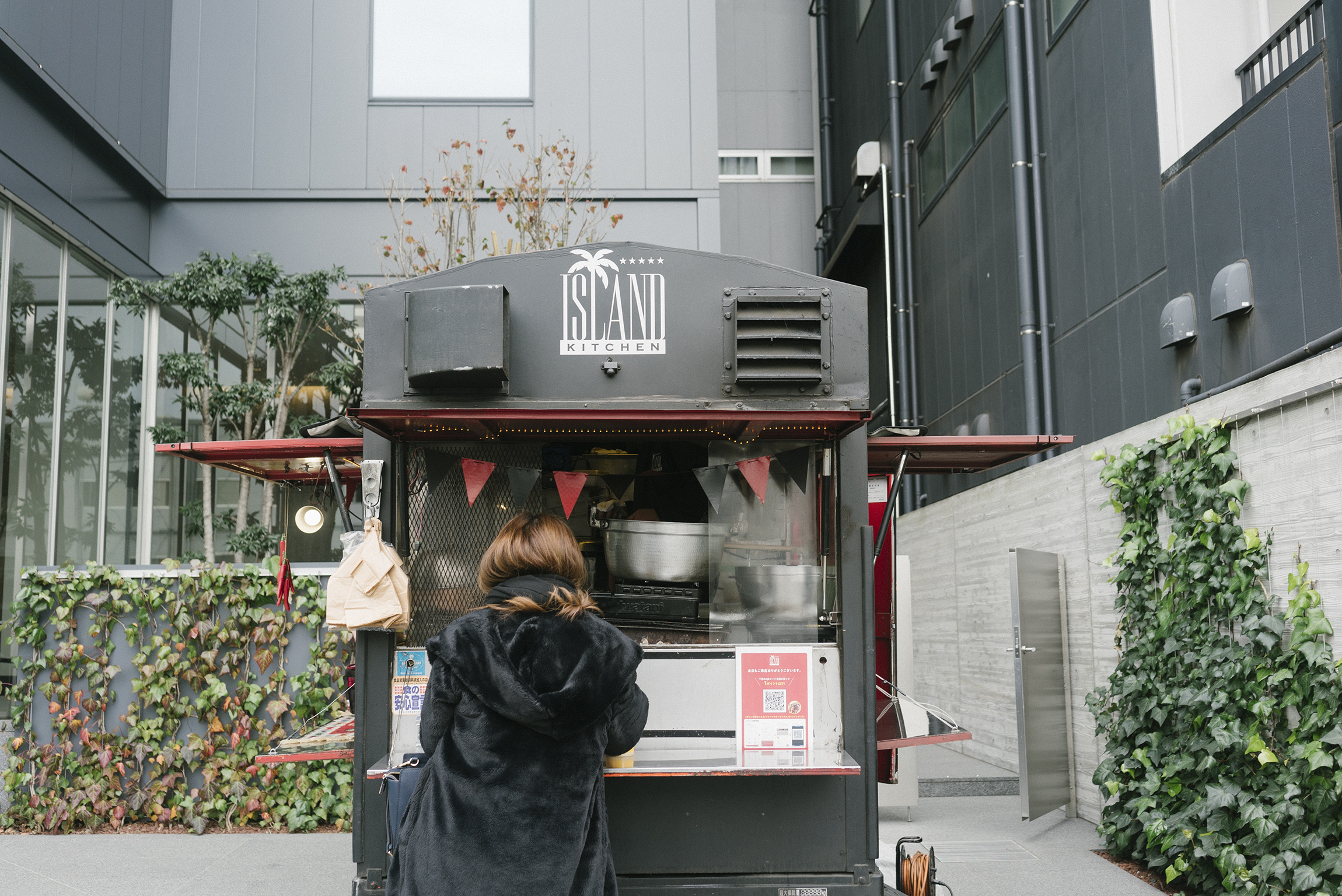
So, Yuki improves, using native produce like the leafy takana instead of callaloo and making other substitutes based on what he has available. As he plates up jerk boxes for the crowd of hungry office workers gathering outside his truck, Yuki explains that Caribbean food isn’t as well known in Japan as other international cuisines.
“It’s not that common here,” he says. “People know about Asian food, like Indian food, now and they are growing. I wanted to bring the food home and introduce Caribbean food to Japan.”
Toranoko Shokudo, a pop-up in Tokyo’s Shibuya neighbourhood, is also inspired by a trip to the Caribbean. Owner Yumi visited Cuba and returned to Japan with a dream to serve true Cuban-style pork, rice, and beans, as well as mojitos and palomas. When Jamaican-born Anthony “Tony” Thomas settled in Japan after years of touring as a reggae musician, his wife introduced him to Yumi and it was “inevitable” that something would take off.
Every Wednesday at Toranoko Shokudo, DJs spin island tunes and Thomas serves his Jamaican dishes.
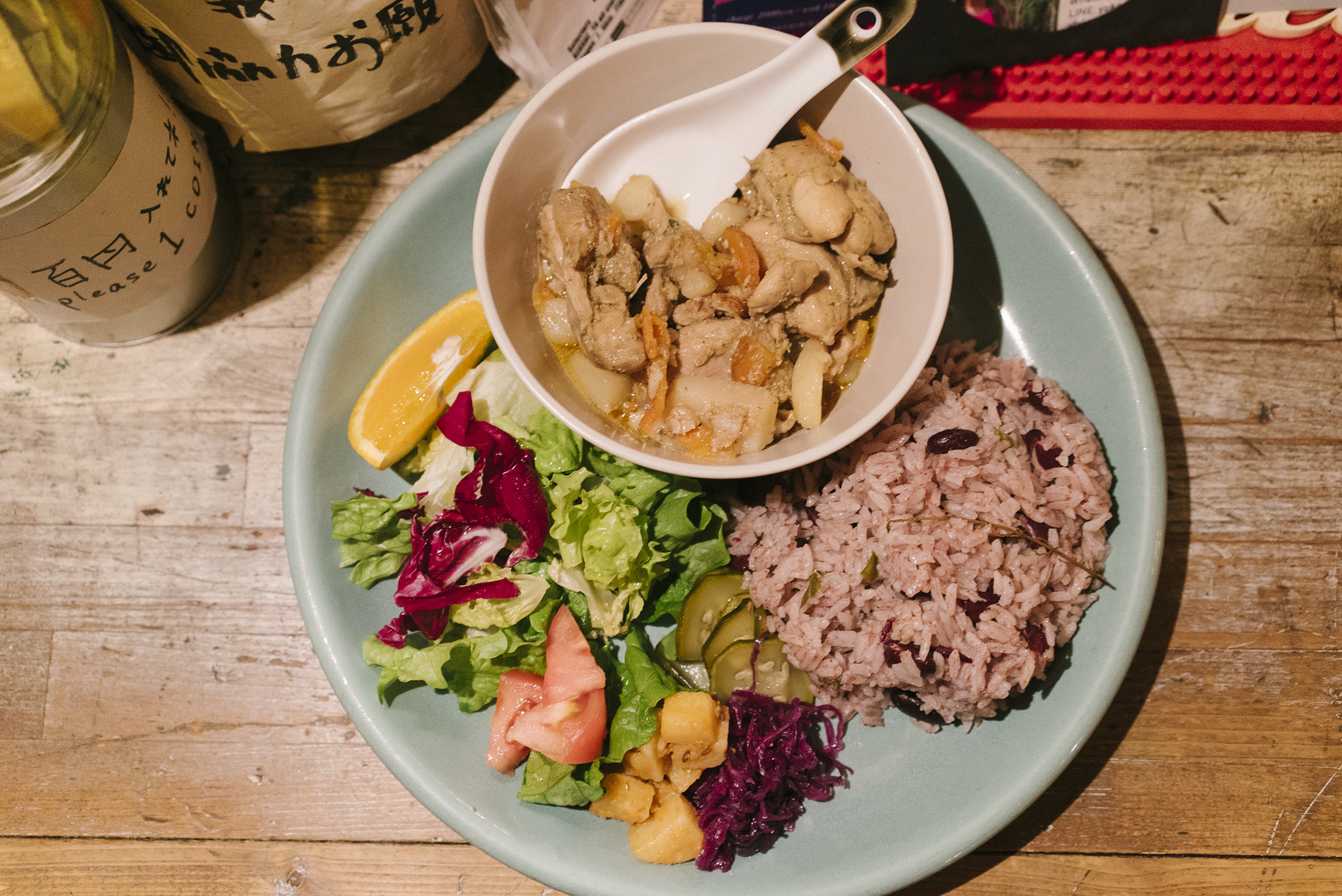
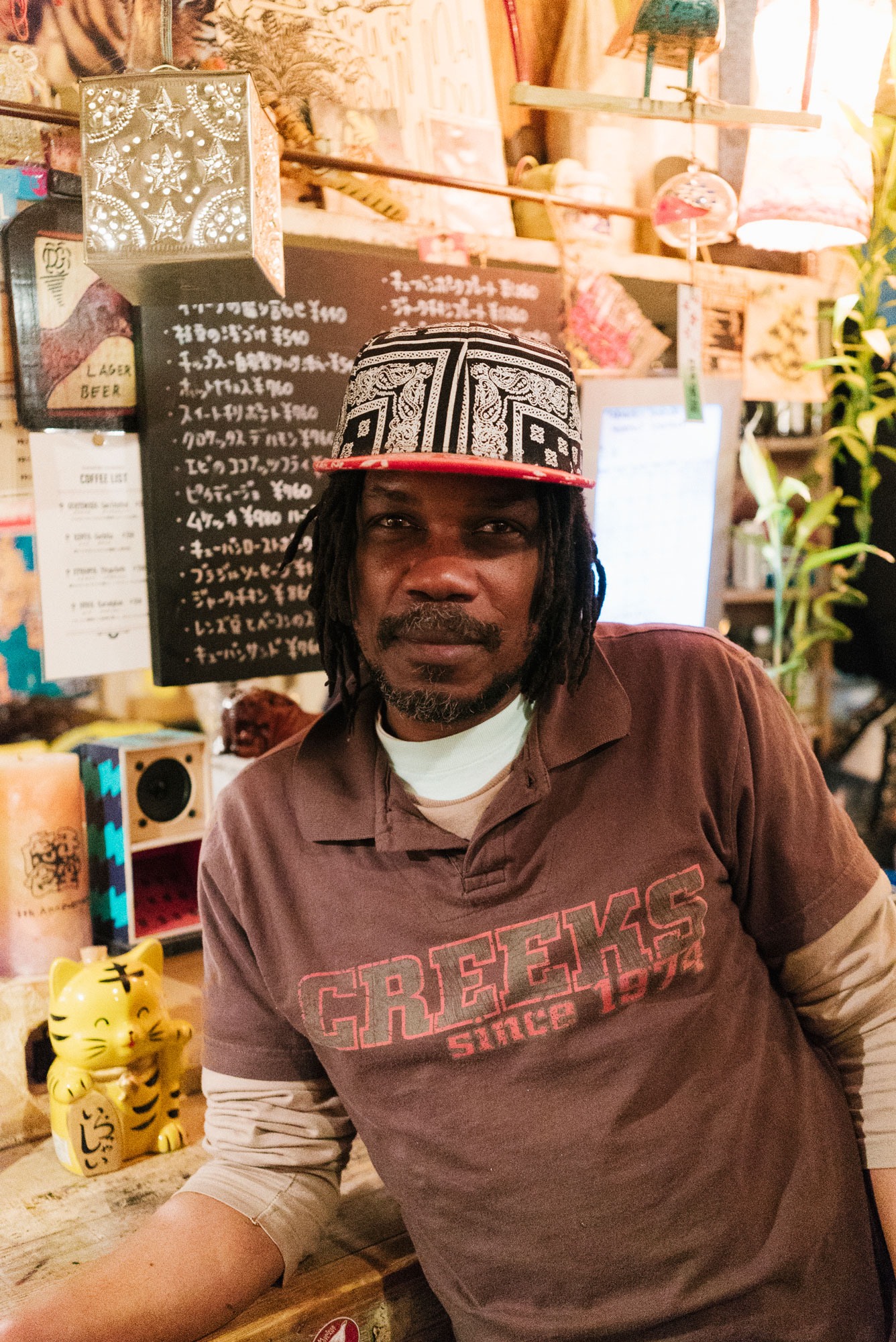
“Each week, we do different meats,” he tells me. “Jerk chicken, brown stew, ackee and saltfish. Sometimes we do sides like festival and fried dumplings.”
On my visit, the space is filled with young Japanese couples and groups of friends eating their way through Thomas’ menu. He admits that while he does miss the food in Jamaica, cooking comfort food dishes like sweet potatoes, Irish potatoes, and dumplings at Toranoko Shokudo helps ease the homesickness.
“It’s much more calmer here in Japan though!” Thomas laughs.
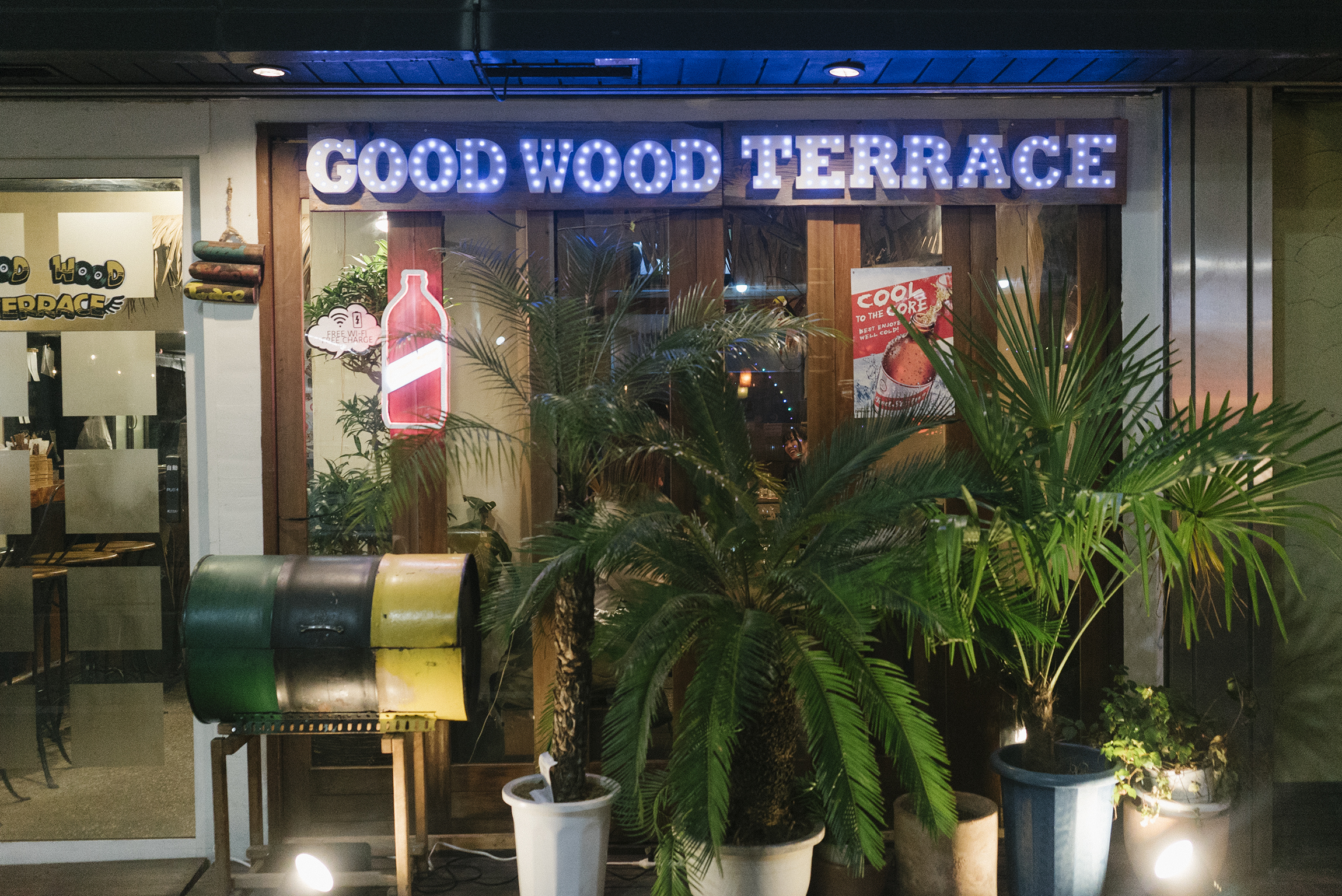
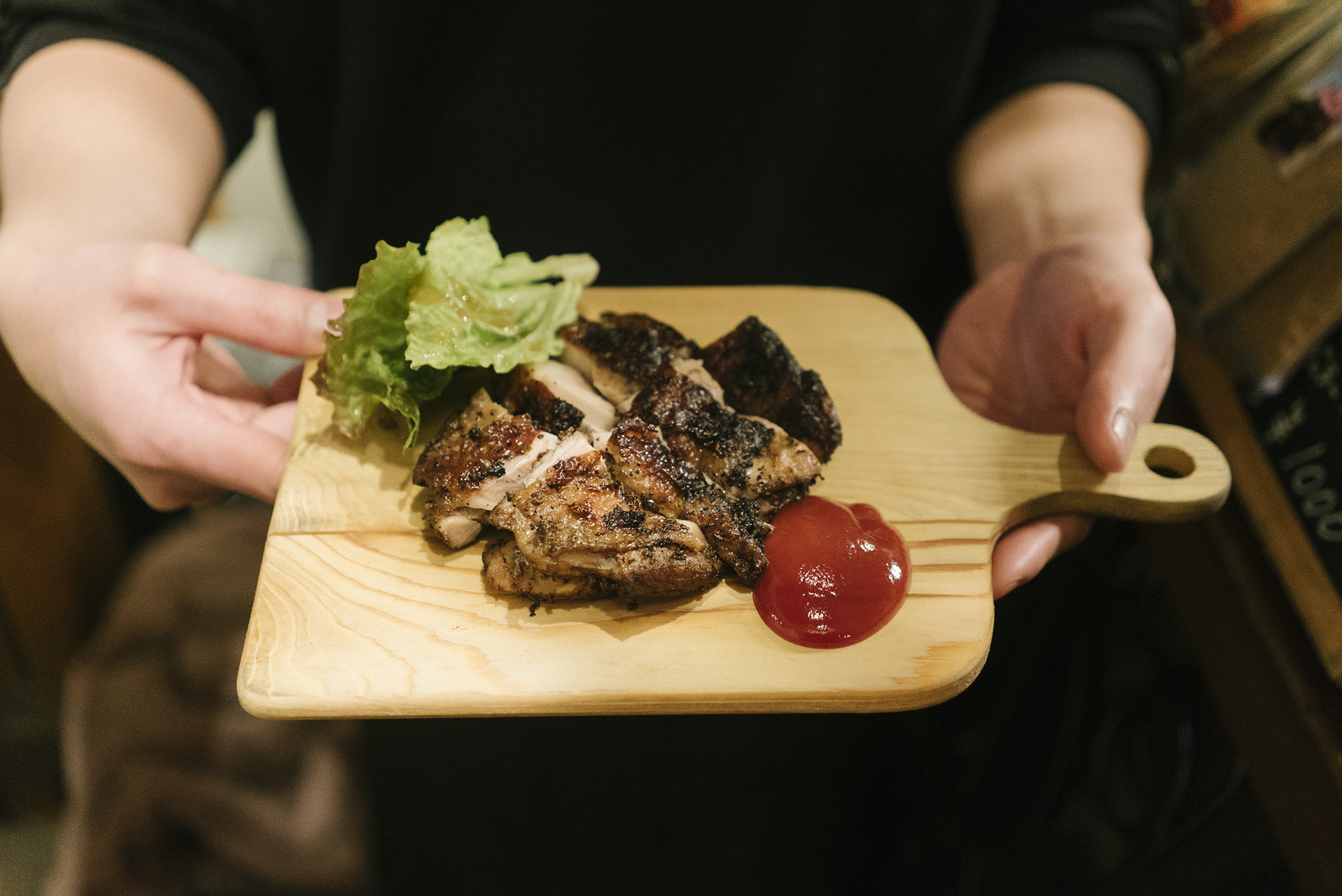
Also on the back streets of Shibuya is Good Wood Terrace, one of Tokyo’s only permanent Caribbean restaurants, existing in some form for almost 14 years. The restaurant runs weekly reggae nights and is always filled with locals and tourists eating jerk dishes grilled on an authentic jerk drum stationed behind the bar.
Manager Sei, who is also part of a dancehall troupe, tells me the secret to their success: “Our first chef was from Jamaica, he taught us everything!”
While most of Japan’s Jamaican eating establishments are located in its capital, other cities also boast a healthy Caribbean cultural scene. In Osaka, local DJ IQ spends his Sundays serving oxtail and jerk to friends and passers-by in a small pop-up down a side street. Corner Shop has been decked out in a Jamaican “yard-style” theme, complete with a grill wall, jerk drum, and hatch serving Jamaican snacks.
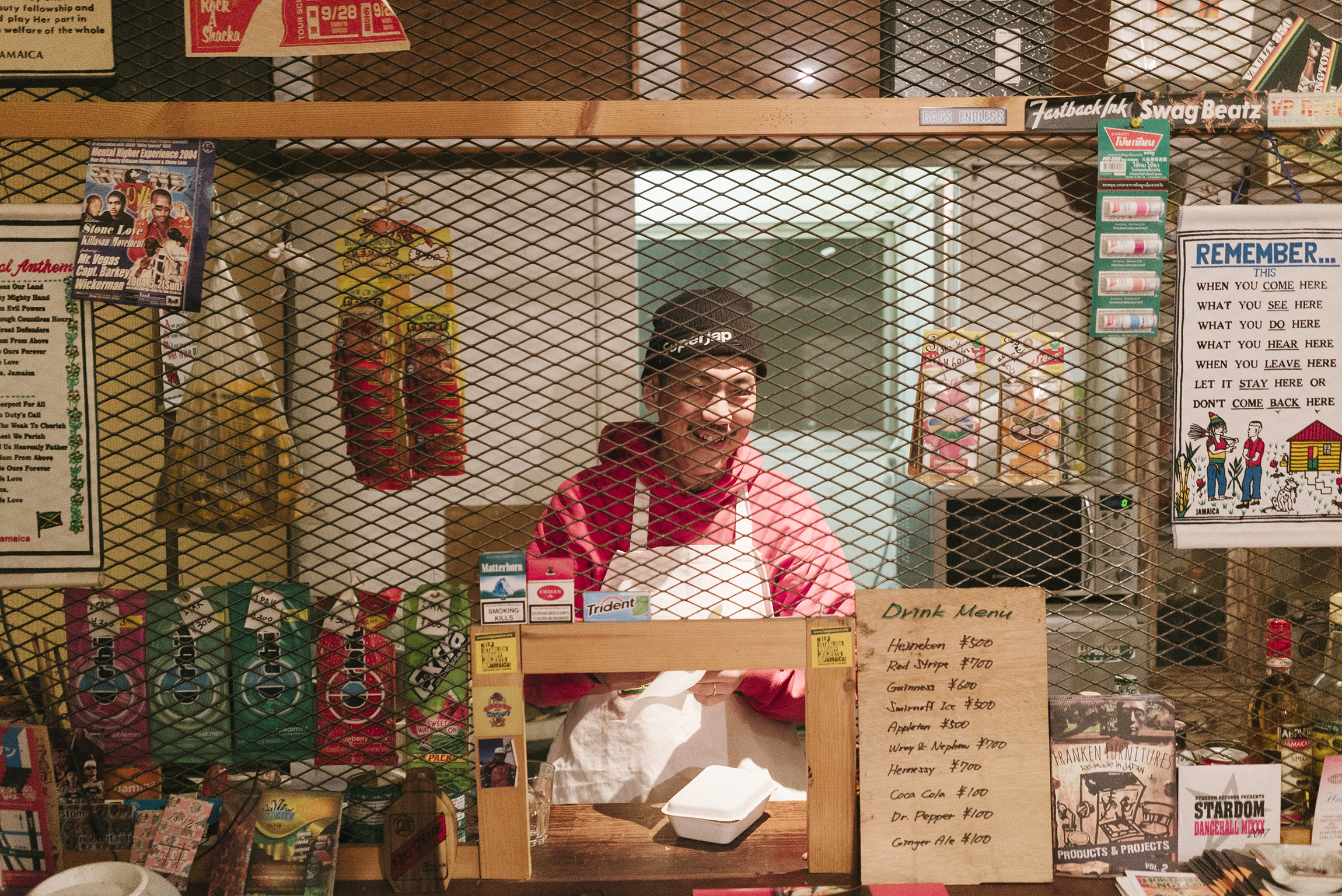
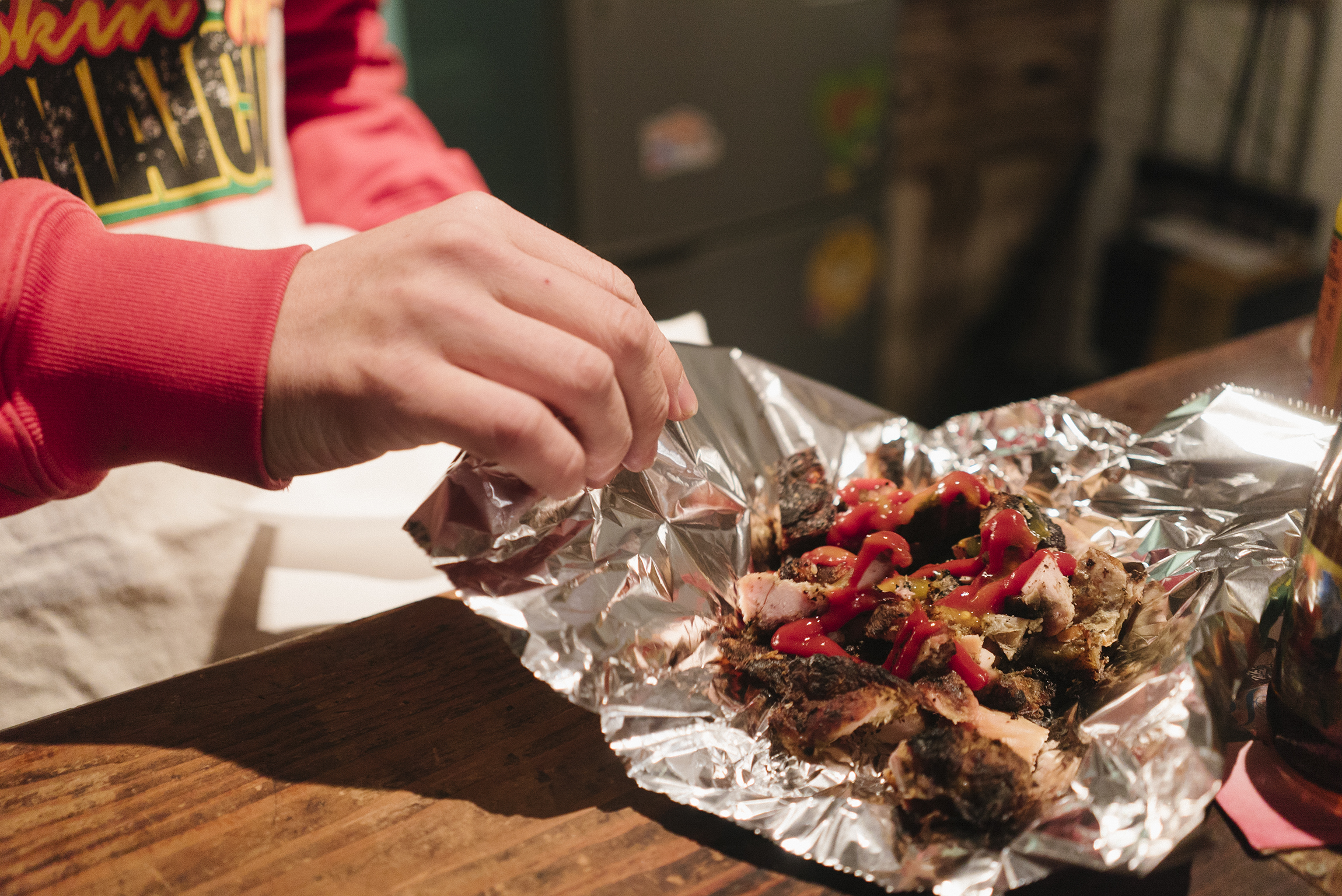
IQ, who also works as a clerk at a reggae record store in Osaka, exclaims: “I just love Jamaican culture,” waxing lyrical about his many trips to the island after discovering the music, which sparked his love for the food.
Later, I visit Osaka’s JERKMAN restaurant and find a birthday party in full swing. Diners bop their head to reggae vinyl tunes laid down by the DJ, while husband-and-wife team Moonie and Hirose (a.k.a. Mama Cook) serve drinks and chop meats grilled on a jerk drum outside the restaurant.
With a full Jamaican menu barring everything but the most tropical of produce, Moonie explains that he often asks friends travelling to Jamaica to bring him back ackee. Mama Cook also proudly shows me her homemade hot pepper sauce, made with Japanese chili.
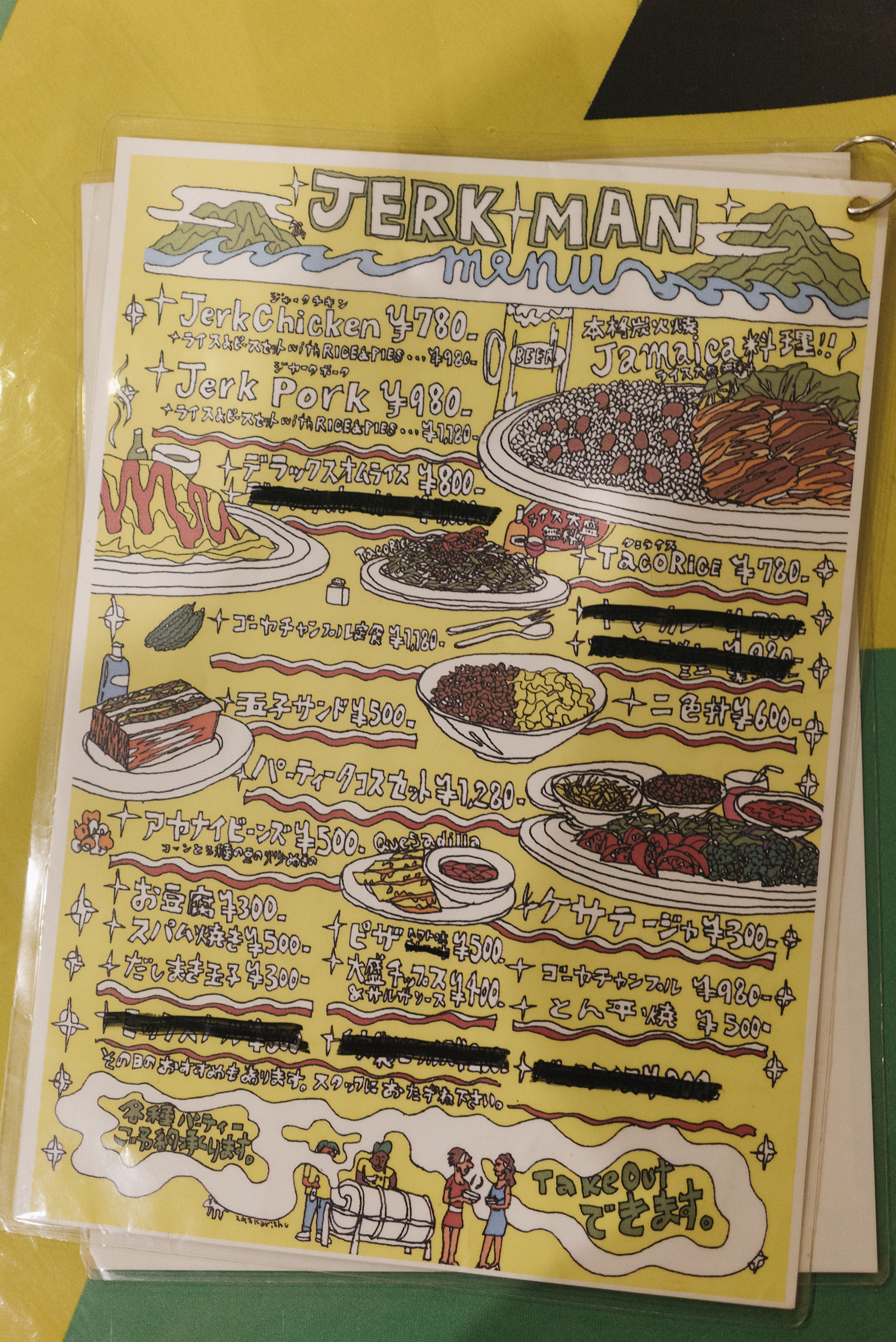
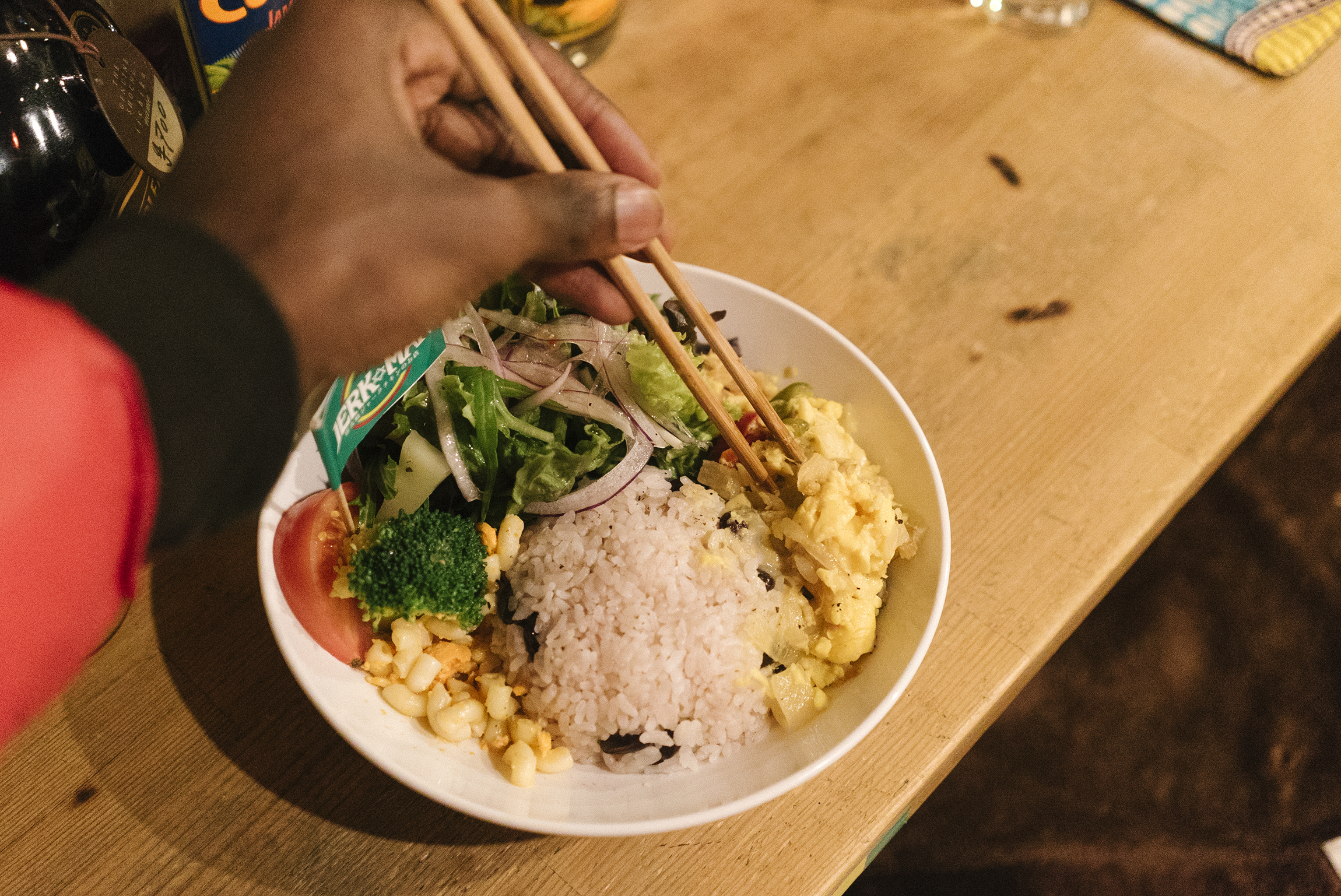
Meanwhile at the nearby Island Base Kitchen, chef-owner Kotomi Jahlove also uses Jamaican produce to serve her take on Caribbean food. She explains that she found Jamaican food culture through family members who were into the music scene. After visiting the Jamaican countryside herself, she became a convert, and decided to open Island Base Kitchen. She specialises in Jamaican-influenced vegan tapas dishes, including avocado and seaweed nuggets, yam croquettes, and vegetables in a spicy miso marinade.
“People think that veggies are just the side but I wanted to show something different, that veg can be the main,” Jahlove says.

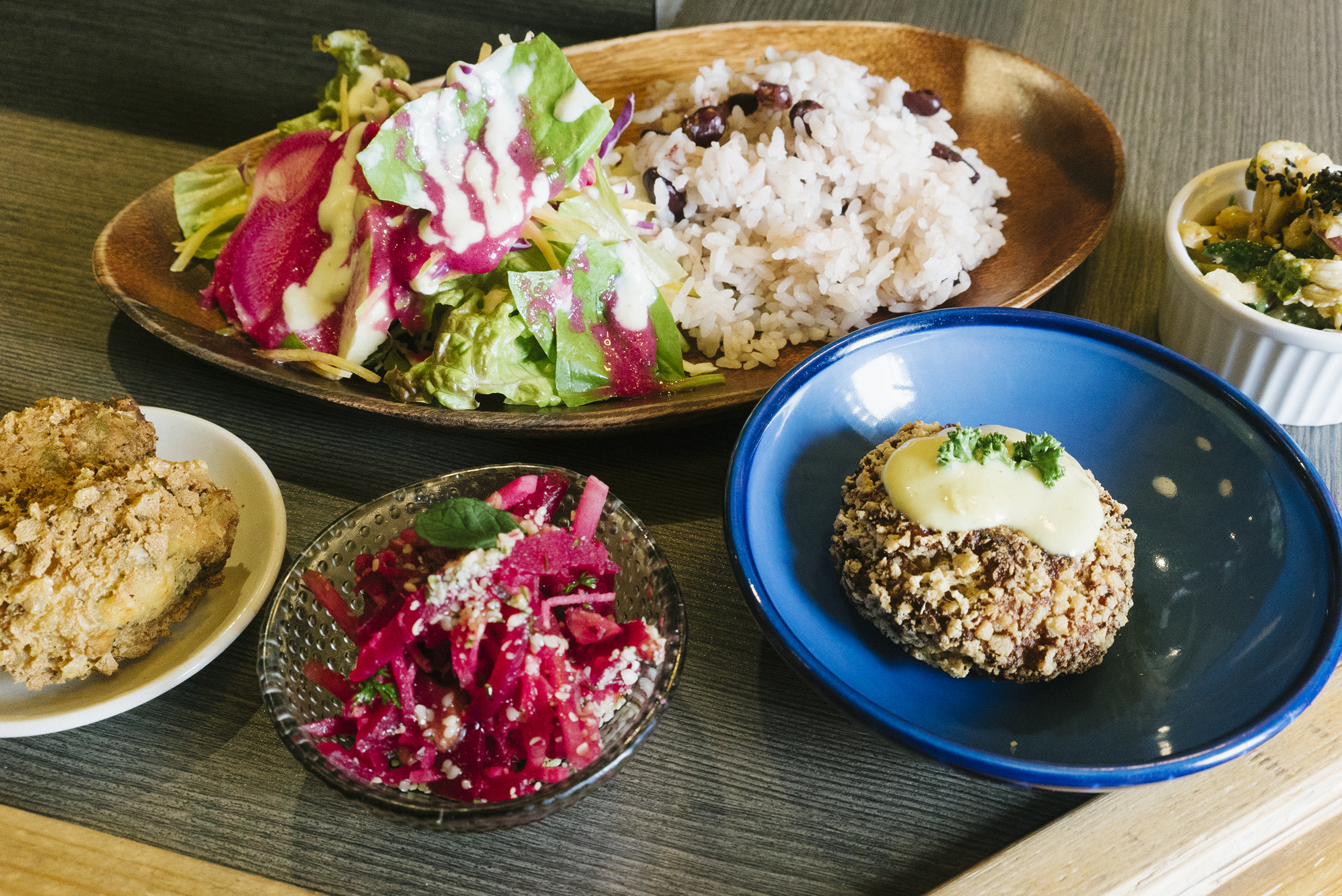
Some may accuse Japan’s Jamaican food spots of cultural appropriation but their owners clearly have an eagerness to promote a beloved culture, rather than simply cash in. Every one of the places I visited in Tokyo and Osaka was borne out of a passion for reggae, shared by both staff and customers. Indeed unlike in Britain or the US, where the prevalence of Caribbean food has caused it to become separated from reggae, Japan’s Jamaican food scene is inextricably linked with the original music culture.
Let’s hope that this tiny piece of Jamaica lives on in Japan for many years to come.



